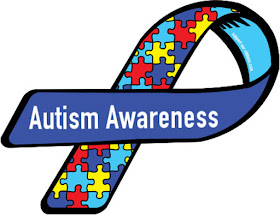Autism
spectrum disorders (ASD) are neurodevelopmental disorders, characterized by difficulties in social
interactions, verbal and non-verbal communication, and stereotypic or
repetitive behaviors. Gastrointestinal
(GI) distress is common in children with ASD and include, abdominal pain, bloating, diarrhea and
constipation. The high frequencies of these GI symptoms could be due to
abnormal GI bacterial flora in individuals with ASD. The GI bacterial
flora are important for nutrition and
metabolic processes and growing evidence suggest that they play a role in brain
development, behavior, and gene expression via neural, endocrine, and immune
pathways. Emerging research on the gut-microbiome-brain connection in both mice
and humans has shed new light on the pathogenesis of various neurological
diseases including ASD.
A
total of 15 cross-sectional studies, with a combined sample of 562 individuals
reported significant differences in the prevalence of GI bacteria between ASD
children and controls, in some bacteria in the Firmicutes (including Clostridium spp. ), Bacteroidetes
and Proteobacteria phyla. The level of the probiotic Bifidobacterium spp. was lower in children with ASD than in
controls. Some studies found an association between the severity of GI symptoms
and the severity of autism.
Future
research should explore whether administration of probiotic bacteria, and or
antimicrobials could restore normal gut microbiota, reduce inflammation,
restore epithelial barrier function, and potentially ameliorate behavioral
symptoms associated with some children with ASD.

No comments:
Post a Comment